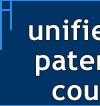Copyrightuser.org – a co-production between CIPPM Bournemouth University and CREATe, University of Glasgow – has been updated in light of the changes to UK copyright law made on 1 June 2014. Learning from the difficulties encountered by other initiatives in the field of copyright education, the Copyright User project aims at keeping up with the evolving copyright landscape.
Copyrightuser.org offers creators and members of the public authoritative explanatory guidance on copyright produced by leading academics. In order to reflect the current status of the law after the recent reforms, the commentaries on Education, Research and Private Study, Archives and Preservation, and Text and Data Mining have been revised by the relevant authors under the direction of the Copyright User Editorial Board. The same process is envisaged for the (hopefully) upcoming implementation of the new copyright exceptions for Parody and Quotation, and Personal Copying for Private Use.
The reforms which came into force on 1 June 2014 include:
Education
Sections 32, 35 and 36 of the Copyright, Designs and Patents Act 1988 have been amended.
Section 32 CDPA has become a single fair dealing provision which allows teachers to use any type of copyright work ‘for the sole purpose of illustration for instruction’ (meaning for the purpose of teaching). The exception now includes the use of copyright material on interactive whiteboards and cannot be overridden by contract.
Copies made under sections 35 and 36 CDPA can now be communicated to students online, so long as the material is made available through secure networks that can only be accessed by staff and students. Unlike the previous provisions, section 36 CDPA now applies to all types of copyright work apart from broadcasts and free-standing works of art. Also, the amount of work that can be copied under this section has raised from 1% per quarter of a calendar year to no more than 5% within any 12 month period.
Research and Private Study
The amended section 29 CDPA enables fair dealing for non-commercial research and private study with all types of copyright works, including films, sound recordings, broadcasts, and the recordings of performances. This copyright exception can be invoked only by researchers and students, or by people making copies on their behalf. For example, a librarian can make a copy of material under the exception if they are satisfied that the person requesting the copy requires it for research or private study, and so long as that person is not provided with more than one article from the same journal or with more than a reasonable proportion of any other published work. Contractual terms which purport to restrict or prevent the doing of the acts permitted under the exception are unenforceable.
Text and Data Mining
A new section 29A has been inserted to explicitly allow text and data mining for the purpose of non-commercial research, so long as users have lawful access to the work they want to analyse. Copies made for text and data analysis cannot be sold or let for hire; the provision further specifies that copyright is infringed if the copy made is transferred to another person, or it is used for purposes different than those permitted by the exception. The activities covered by this section cannot be overriden by contract.
Archives and Preservation
The scope of section 42 CDPA has been expanded to cover films, broadcasts, sound recordings and artistic works (including photographs); so that now memory institutions can make copies of any type of work for preservation purposes. Again, this exception cannot be ruled out by contract.
Section 43 CDPA, which allows libraries and archives to make and supply single copies of unpublished works, has also been amended in order to cover all types of copyright work. Importantly, memory institutions are no longer required by law to charge the user a specified sum of money for making the copy: they can now choose to charge a fee (or not) at their own discretion. The requirement of a request in writing from the user who wants the copy has been retained, but this now includes requests in digital form (e.g. by email).
The changes made on 1 June 2014 by the Copyright and Rights in Performances (Research, Education, Libraries and Archives) Regulations 2014 can be found here.
The new copyright legislation resulting from these changes is explained in accessible and user-friendly language on copyrightuser.org.





